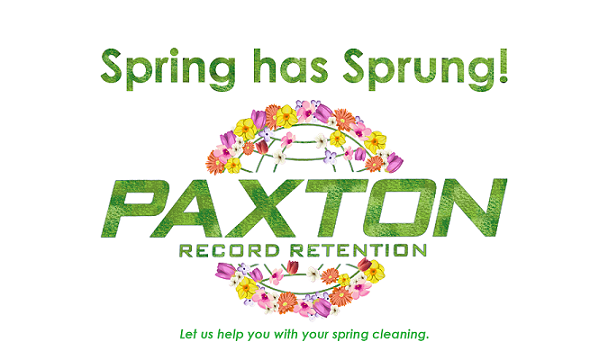Time for Document Spring Cleaning
Wednesday, 30 March 2016

As the weather starts to change tasks associated with document retention can slip through the cracks or be delegated to that ever growing to do list. Spring has sprung and its time to address your document retention with a renewed sense of purpose this spring. While specific legal retention periods will vary based on industry requirements and document types, we have outlined some suggestions to help with your Spring Clean this year:
1. Identify records that should never be destroyed. Certain corporate records and documents need to be kept indefinitely examples are: corporate charter, certificates of incorporation, by laws, board of director meeting minutes, deeds, stock certificates, retirement and pension records, labor contracts, patents, trademarks, registration of trademark applications, and company history documents. Financial records that should be saved include: income tax reports, financial statements. Accounting records and income tax payment checks and any documents related to fixed assets owned by the company and depreciated over time.
2. Determine what can be disposed of today. Memos, outdated forms, to do lists, old marketing materials, can all be discarded immediately. Most paperwork is harmless, keep in mind that documents containing customer information or proprietary company information need to be shredded. It’s wise to consider a “shred all” policy to eliminate any confusion on what records contained confidential information.
3. Understand industry legal compliance retention periods. This is where having a retention schedule will help aide in your spring cleaning. If you are unsure of what to keep and what not to keep for a period of time, we suggest seeking out professional consultation. Additional it’s critical to store all important records in boxes that are well organized and marked clearly with contents and dates of items stored. Below are some suggested period guidelines but we always suggest checking with your company’s retention periods before disposal of a record.
a. Six to Seven years. In general this would include sales records such as invoices, monthly statements, shipping documents and customer purchase orders. Other records that might fall under the six to seven years guidelines, sales receipts, employee records, travel records including expense reports and  receipts. Financial records that need to be kept include personnel and payroll records, examples would be payments and reports to taxing authorities, to include federal income tax withholdings, FICA, unemployment taxes and worker’s compensation insurance. Bank reconciliations, voided checks and check stubs should be held.
receipts. Financial records that need to be kept include personnel and payroll records, examples would be payments and reports to taxing authorities, to include federal income tax withholdings, FICA, unemployment taxes and worker’s compensation insurance. Bank reconciliations, voided checks and check stubs should be held.
b. Three years. Any financial information that includes monthly and quarterly financial statements as well as personnel paperwork. Personnel records that include employee applications, benefit records, expired insurance policies and general business correspondence.
Taking into consideration the above suggestions you will be able to tackle your document spring cleaning with confidence and enjoy the satisfaction of marking this item off your to do list.












